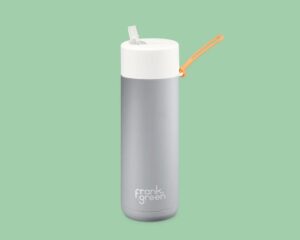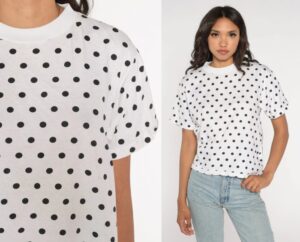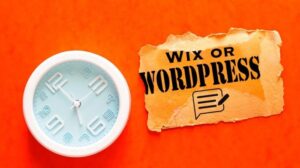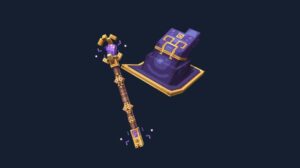Embark on a culinary journey with the pollo pescetarian diet, a unique fusion of pescatarian principles and poultry indulgence. This balanced approach offers a plethora of health benefits, environmental considerations, and cultural insights that will tantalize your taste buds and nourish your well-being.
Delve into the intricacies of this diet, exploring its dietary guidelines, potential health implications, and the art of crafting nutritious and flavorful meals. Discover the environmental impact of pollo pescetarianism and engage in thought-provoking discussions on its cultural and ethical aspects.
Pollo Pescetarian Overview
A pollo pescetarian diet is a type of semi-vegetarian diet that includes poultry and fish but excludes red meat and other animal products. This diet is often adopted for ethical, environmental, or health reasons.
Pollo pescetarians typically consume a wide variety of plant-based foods, including fruits, vegetables, whole grains, legumes, and nuts. They may also eat eggs and dairy products, although some choose to avoid these as well.
Dietary Guidelines
The dietary guidelines for a pollo pescetarian diet are similar to those for a vegetarian diet. However, pollo pescetarians can also eat poultry and fish.
- Eat plenty of fruits and vegetables.
- Choose whole grains over refined grains.
- Include legumes and nuts in your diet.
- Limit your intake of saturated and trans fats.
- Choose lean protein sources, such as poultry, fish, and beans.
Dietary Restrictions
The dietary restrictions for a pollo pescetarian diet are as follows:
- No red meat
- No pork
- No lamb
- No veal
- No game meats
Some pollo pescetarians also choose to avoid eggs and dairy products.
Health Implications
Adopting a pollo pescetarian diet offers numerous potential health benefits. Research suggests that it may reduce the risk of chronic diseases such as heart disease, stroke, type 2 diabetes, and some types of cancer.
The inclusion of fish in the diet provides omega-3 fatty acids, which have anti-inflammatory properties and support heart health. Additionally, the high intake of fruits, vegetables, and whole grains provides antioxidants, vitamins, minerals, and fiber, which contribute to overall well-being and disease prevention.
Potential Drawbacks and Limitations
While a pollo pescetarian diet can be beneficial for many, it’s important to consider potential drawbacks and limitations:
- Vitamin B12 deficiency:Vitamin B12 is primarily found in animal products, and a pollo pescetarian diet may not provide adequate amounts. Supplementation or consuming fortified foods may be necessary.
- Iodine deficiency:Iodine is essential for thyroid function, and fish is a good source. However, some types of fish may contain low levels of iodine, so it’s important to include iodized salt or other iodine-rich foods in the diet.
- Mercury exposure:Certain types of fish, such as tuna and swordfish, may contain high levels of mercury. Pregnant women, children, and individuals with certain health conditions should limit their consumption of these fish.
Overall, a well-planned pollo pescetarian diet can be a healthy and sustainable choice. However, it’s important to be aware of potential limitations and make necessary adjustments to ensure adequate nutrient intake.
Meal Planning
Planning a balanced and nutritious pollo pescetarian diet requires careful consideration of food choices to ensure adequate intake of essential nutrients. This involves incorporating a variety of protein sources, fruits, vegetables, whole grains, and healthy fats.
Here are some key guidelines for meal planning:
- Choose lean protein sources:Fish, poultry, beans, lentils, and tofu are excellent sources of protein.
- Include plenty of fruits and vegetables:Aim for at least five servings per day to provide vitamins, minerals, and fiber.
- Opt for whole grains:Brown rice, quinoa, and whole-wheat bread provide complex carbohydrates, fiber, and nutrients.
- Incorporate healthy fats:Olive oil, avocados, and nuts provide essential fatty acids and support overall health.
- Limit processed foods, sugary drinks, and unhealthy fats:These foods offer little nutritional value and can contribute to weight gain and chronic diseases.
Sample Meal Ideas, Pollo pescetarian
Here are some sample meal ideas for a pollo pescetarian diet:
- Breakfast:Oatmeal with berries and nuts, or Greek yogurt with fruit and granola
- Lunch:Grilled salmon salad with mixed greens, quinoa, and vegetables, or lentil soup with whole-wheat bread
- Dinner:Baked chicken with roasted vegetables and brown rice, or pasta with tomato sauce and grilled shrimp
- Snacks:Apple with peanut butter, trail mix, or hummus with vegetables
Environmental Considerations
The environmental impact of a pollo pescetarian diet is a crucial factor to consider. Compared to other dietary choices, such as a meat-based diet, it has a lower environmental footprint. Here’s an overview of the environmental considerations associated with a pollo pescetarian diet:
Sustainability of Fish and Seafood Consumption:The sustainability of fish and seafood consumption is a major concern in the context of a pollo pescetarian diet. Overfishing and unsustainable fishing practices can lead to the depletion of fish populations and damage to marine ecosystems. Choosing sustainable seafood options, such as those certified by the Marine Stewardship Council (MSC), can help minimize the environmental impact of fish consumption.
Seafood Sustainability
- Overfishing and unsustainable fishing practices can deplete fish populations and damage marine ecosystems.
- Choosing sustainable seafood options, such as those certified by the Marine Stewardship Council (MSC), can help minimize the environmental impact of fish consumption.
- Aquaculture, or fish farming, can provide a more sustainable source of seafood if managed responsibly.
Cultural and Ethical Aspects
A pollo pescetarian diet is influenced by various cultural and ethical considerations. Religious beliefs, traditions, and personal values play a significant role in shaping dietary choices.
Religious Beliefs
In certain religions, such as Hinduism, Buddhism, and Jainism, vegetarianism or pescetarianism is practiced for spiritual reasons. The belief in the sanctity of life and the avoidance of harming animals guide these dietary choices.
Are you considering making a dietary shift towards a pescatarian lifestyle? This semi-vegetarian approach offers a balanced blend of plant-based foods and seafood. If you’re keen on exploring this dietary change, check out our comprehensive guide on how to become a pescatarian . This informative resource provides valuable insights and practical tips to help you navigate the transition smoothly.
Cultural Traditions
Cultural traditions can also influence the adoption of a pollo pescetarian diet. In some Mediterranean cultures, for example, seafood is a staple food, while in certain Asian cultures, fish and shellfish hold cultural significance.
Personal Beliefs
Personal beliefs, such as concerns about animal welfare, environmental sustainability, or health, can motivate individuals to adopt a pollo pescetarian diet. Some people may choose to reduce their meat consumption for ethical reasons, while others may do so for health benefits.
Comparison to Other Diets
The pollo pescetarian diet shares similarities and differences with other popular dietary approaches, including vegetarianism, veganism, and the Mediterranean diet. Understanding these comparisons can help individuals make informed choices about their dietary preferences.
One notable similarity between the pollo pescetarian diet and vegetarianism is their focus on plant-based foods. Both diets emphasize the consumption of fruits, vegetables, whole grains, and legumes. This shared emphasis on plant-based nutrition can provide numerous health benefits, including reduced risk of chronic diseases such as heart disease, stroke, and certain types of cancer.
Dietary Guidelines
- Pollo Pescetarian:Includes seafood and poultry but excludes red meat, pork, and other animal products.
- Vegetarian:Excludes all animal products, including seafood, poultry, meat, eggs, and dairy.
- Vegan:Excludes all animal products and animal-derived ingredients, such as honey and gelatin.
- Mediterranean:Emphasizes fruits, vegetables, whole grains, legumes, and healthy fats, with moderate consumption of fish, poultry, and dairy.
Health Implications
- Pollo Pescetarian:May offer similar health benefits to vegetarianism, including reduced risk of heart disease, stroke, and certain types of cancer. Seafood consumption provides additional omega-3 fatty acids, which are beneficial for heart and brain health.
- Vegetarian:Can provide adequate nutrition and health benefits, but requires careful planning to ensure sufficient protein, iron, calcium, and vitamin B12 intake.
- Vegan:May require even more careful planning to ensure adequate intake of essential nutrients, such as protein, iron, calcium, vitamin B12, and vitamin D.
- Mediterranean:Associated with a lower risk of chronic diseases, including heart disease, stroke, and certain types of cancer. The emphasis on healthy fats, fruits, and vegetables contributes to overall health and well-being.
Environmental Impact
- Pollo Pescetarian:Lower environmental impact compared to diets that include red meat and processed meats. Seafood consumption has a smaller carbon footprint than animal agriculture, but concerns about overfishing and sustainability should be considered.
- Vegetarian:Generally has a lower environmental impact than diets that include animal products. Plant-based agriculture requires less land, water, and energy.
- Vegan:The lowest environmental impact among these diets. Excluding all animal products significantly reduces greenhouse gas emissions and other environmental concerns.
- Mediterranean:Moderate consumption of animal products can contribute to a lower environmental impact compared to diets high in red meat and processed meats. However, the sustainability of seafood sources should be considered.
Resources and Support
Adopting a pollo pescetarian diet can be a smooth transition with the right resources and support. This section provides a comprehensive list of online forums, cookbooks, and professional organizations dedicated to assisting individuals in their pollo pescetarian journey.
Embarking on a pescatarian diet can be an exciting and rewarding journey. If you’re curious about how to make the switch, look no further than this comprehensive guide . It offers a wealth of practical tips and insights to help you navigate the transition seamlessly, ensuring a healthy and fulfilling experience.
Online Forums
- The Pescetarian Society: A global community for pescetarians, offering support, recipes, and a forum for connecting with like-minded individuals.
- Reddit’s r/Pescetarian: An active subreddit where users share recipes, tips, and engage in discussions related to the pollo pescetarian diet.
Cookbooks
- Pescetarian: The Ultimate Cookbook for Fish and Seafood Loversby Janet Fletcher: A comprehensive guide with over 200 recipes tailored specifically for pollo pescetarians.
- The Mediterranean Pescetarian Cookbookby George Mateljan: A collection of healthy and flavorful recipes inspired by the Mediterranean diet, emphasizing seafood and plant-based ingredients.
Professional Organizations
- The Academy of Nutrition and Dietetics: A professional organization that provides resources and support for registered dietitians and nutritionists specializing in plant-based diets, including the pollo pescetarian diet.
- The American Dietetic Association: Another professional organization that offers educational materials and resources on the pollo pescetarian diet, along with a searchable database of registered dietitians who specialize in this area.
Final Summary
As you conclude your exploration of the pollo pescetarian diet, remember its versatility and adaptability. Whether you seek to reduce your environmental footprint, enhance your health, or simply expand your culinary horizons, this diet offers a harmonious blend of flavors and nourishment.
Embrace the pollo pescetarian lifestyle and embark on a journey of culinary discovery and well-being.
User Queries
What are the key dietary guidelines of a pollo pescetarian diet?
Pollo pescetarians consume fish, seafood, poultry, eggs, and dairy products while excluding red meat and other animal meats.
Are there any potential drawbacks to a pollo pescetarian diet?
As with any diet, it’s important to ensure adequate intake of essential nutrients, particularly vitamin B12, iron, and omega-3 fatty acids, which may require supplementation or careful meal planning.
How does a pollo pescetarian diet compare to a vegetarian or vegan diet?
Pollo pescetarians consume animal products such as fish, seafood, poultry, and dairy, unlike vegetarians who exclude all animal meats and vegans who exclude all animal products, including eggs and dairy.






Leave a Comment